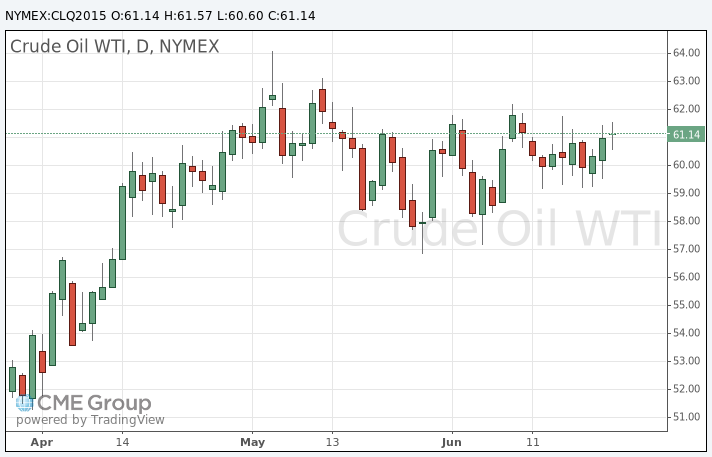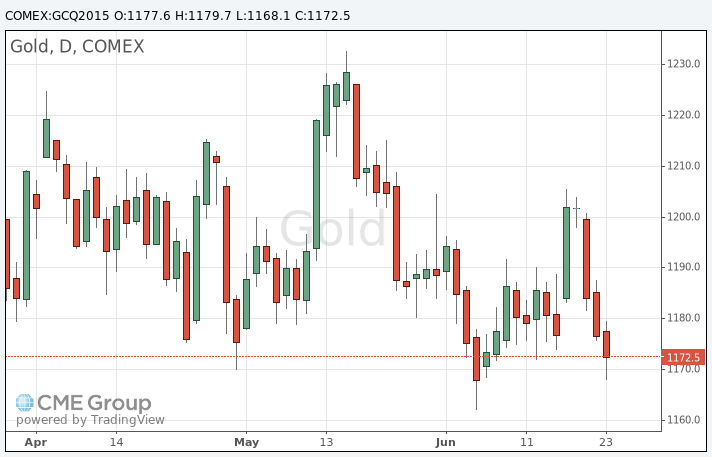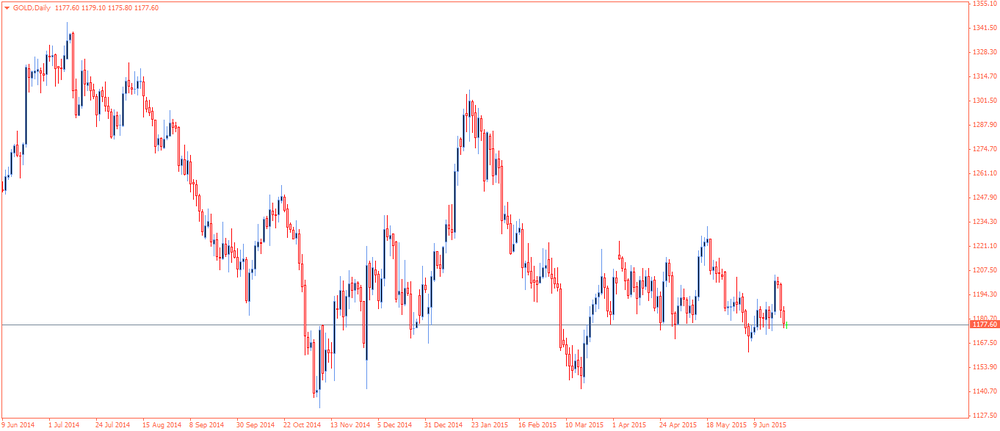Noticias del mercado
-
17:41
WTI crude oil prices traded higher as U.S. crude oil inventories declined last week
WTI crude oil prices traded higher as U.S. crude oil inventories declined last week. The U.S. Energy Information Administration (EIA) released its crude oil inventories data on Wednesday. U.S. crude inventories declined by 4.9 million barrels to 463 million in the week to June 19. It was the eight consecutive weekly decline.
Analysts had expected a decline of 1.8 million barrels.
Gasoline inventories were up by 680,000 barrels to 218.5 million barrels last week, according to the EIA.
U.S. oil production increased to 9.6 million barrels a day from 9.59 million barrels a day.
Crude stocks at the Cushing, Oklahoma, decreased by 1.87 million barrels to 56.2 million barrels.
U.S. crude oil imports declined by 432,000 barrels per day.
Refineries in the U.S. were running at 94.0% of capacity, down from 93.1% the previous week.
Kuwaiti Oil Minister Ali al-Omair said on Tuesday that oil prices are expected to rise as stockpiles and the number of drilling rigs declined.
"We have reached a stage where a drop in oil prices is unlikely," he said.
WTI crude oil for August delivery increased to $61.57 a barrel on the New York Mercantile Exchange.
Brent crude oil for August fell to $64.25 a barrel on ICE Futures Europe.

-
17:25
Gold price traded lower as the U.S. dollar strengthened after the release of the final U.S. gross domestic product
Gold price traded lower as the U.S. dollar strengthened after the release of the final U.S. gross domestic product (GDP). The U.S. final GDP declined 0.2% in the first quarter, in line with expectations, up from the previous estimate of a 0.7% drop.
The upward revision was partly driven by an upward revision to consumer spending. Consumer spending rose by 2.1% in the first quarter, up from the previous estimate of a 1.8% increase.
Debt talks between Greece and its creditors remain in focus. Tsipras said before flying to Brussels on Wednesday that some latest Greek reform proposals were refused by its creditors.
Greece rejected on Wednesday a "counter proposal" from its international creditors, according a government source.
August futures for gold on the COMEX today fell to 1168.10 dollars per ounce.

-
17:14
U.S. crude inventories decline by 4.9 million barrels in the week to June 19
The U.S. Energy Information Administration (EIA) released its crude oil inventories data on Wednesday. U.S. crude inventories declined by 4.9 million barrels to 463 million in the week to June 19. It was the eight consecutive weekly decline.
Analysts had expected a decline of 1.8 million barrels.
Gasoline inventories were up by 680,000 barrels to 218.5 million barrels last week, according to the EIA.
U.S. oil production increased to 9.6 million barrels a day from 9.59 million barrels a day.
Crude stocks at the Cushing, Oklahoma, decreased by 1.87 million barrels to 56.2 million barrels.
U.S. crude oil imports declined by 432,000 barrels per day.
Refineries in the U.S. were running at 94.0% of capacity, down from 93.1% the previous week.
-
09:18
Oil: prices are waiting for news
West Texas Intermediate futures for August delivery climbed to $61.12 (+0.18%), while Brent crude for August advanced to $64.59 (+0.22%) a barrel. Today investors are waiting for data on U.S. crude inventories (14:30 GMT), while the deadline for an agreement on Iran nuclear program will be the center of attention next week (June the 30th).
Some sources say that Iran has at least 34 tankers of oil ready to be sold as soon as sanctions are lifted. At the same time Saudi Arabia, OPEC's largest producer, is not going to reduce output to allow Iran claim its market share. This could push oil prices down. In addition to that, Gulf exporters may offer discounts to their customers to protect their own interests.
However there are still obstacles on the way to an agreement and the June 30 dead line could be postponed.
-
09:14
Gold is weighed by gains in equities and hopes for a Greek deal
Gold is currently at $1,176.80 (+0.02%) an ounce. The non-interest-paying metal has declined for a fourth session in a row amid a stronger dollar and equity markets' optimism about Greek debt agreement.
Gold is losing its appeal as a safe-haven asset as Greek officials express confidence that a deal with Greece's international lenders will be reached soon.
Gold is also experiencing pressure from expectations that the Federal Reserve will raise rates this year. The dollar's strength is also a negative factor for bullion.
Physical demand in Asia remained weak.
-
03:31
Commodities. Daily history for Jun 23’2015:
(raw materials / closing price /% change)
Oil 61.13 +0.20%
Gold 1,176.40 -0.02%
-
